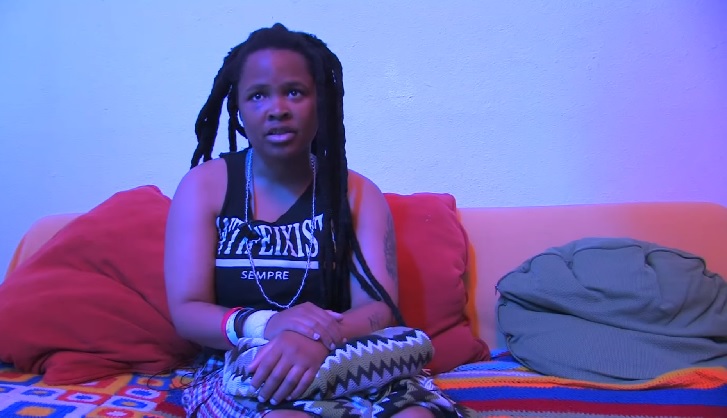
On Saturday, a harrowing event took place in Amsterdam. South African artist and filmmaker Sibahle Nkumbi, who was studying in Amsterdam and visiting her friend’s exhibition, was violently thrown down the stairs by her Airbnb host.
The video, captured by one of her friends, depicts the Airbnb host shouting ‘out, out, out’ whilst pushing Nkumbi towards, and finally down, the stairs.
In a video posted after the incident, Nkumbi described not only the physical but also the verbal abuse involved in this racist attack. The Airbnb host shouted “you people” to her and her friends, “you’re not the great artist that you think you are…this is not Africa”.
Nkumbi was left with concussion and bruises across her whole face and body.
The Airbnb host shouted “you people” to her and her friends, “you’re not the great artist that you think you are…this is not Africa”
This incident of overt, white, male violence against black women’s bodies should not be sugar-coated. It’s the very real effects of a deep rooted racism that gives white men the gall to physically and verbally abuse black women’s bodies without a second thought.
Nkumbi continues in the video: “it was his body language, his facial expression. It was the way he was looking at us. It was not a matter of you looking at another human.” This assault demonstrates the systematic dehumanisation people of colour often fall victim to, especially black women’s bodies.
The response to this attack has rightly been that of anger and shame. In a recent interview in The Independent, director of Diversity and Belonging at Airbnb, David King said:
“Nobody should ever be treated like this and it will not be tolerated[…] Appalling and unconscionable behaviour against members of our community runs counter to everything Airbnb stands for. Our CEO Brian Chesky and I are reaching out to the affected guests. We will take the strongest actions we can against such abhorrent conduct, including banning people for life from our platform and assisting law enforcement with their investigation and potential prosecution.”
“it was his body language, his facial expression. It was the way he was looking at us. It was not a matter of you looking at another human.”
But this isn’t an isolated incident for Airbnb. Last year, a woman in North Carolina was refused from booking an Airbnb place and was sent a barrage of racist messages by the Airbnb host. Last year, the Twitter hashtag #Airbnbwhileblack also went viral, where thousands took to the social media platform to describe their experiences of blatant racism at the hands of Airbnb hosts. In a recent report on racial discrimination in the sharing economy, stats showed that guests with distinctly African-American sounding names were 16% less likely to be accepted into an Airbnb.
Rather than Airbnb taking effective and immediate serious action to address their racial discrimination policy and implicit bias, people have been taking action into their own hands, creating alternative home rentals by and for people of colour. Noirbnb and Innclusive are two startups that have rooted their business models in being more accepting versions of Airbnb. Noirbnb, for example, will have a feature which means that if one person is denied the ability to stay on certain dates, those dates will remain off limits to other customers.
While it’s heartening to see new initiatives developing from the outcry of racism and discrimination, it’s a shame that time and time again, people of colour have to create their own methods of protecting themselves against a racist world. As Ijeoma Oluo states: “Noirbnb and Innclusive were created, not only because we are strong and resourceful in the face of adversity, but because once again white industry and society has failed us and has refused to see us as a valued part of their community.”
“Part of me is sad, part of me is angry, part of me is disappointed; when will we wake up?”
At the end of the video interview with Nkumbi, she says: “part of me is sad, part of me is angry, part of me is disappointed; when will we wake up? People are people”. The perpetrator of the assault has been charged with attempted manslaughter. For many, this experience is all too real, and many people of colour will listen to Sibahle’s story and think “that could have been me”.
Don’t scrutinise how exactly he held Nkumbi and whether she was provoking him. Don’t blame her, and don’t add to the onslaught of horrific social media messages dissecting her experience, questioning her victimhood, and negating Nkumbi’s credibility. We shouldn’t have to witness violence upon the bodies of people of colour to know that it exists.









